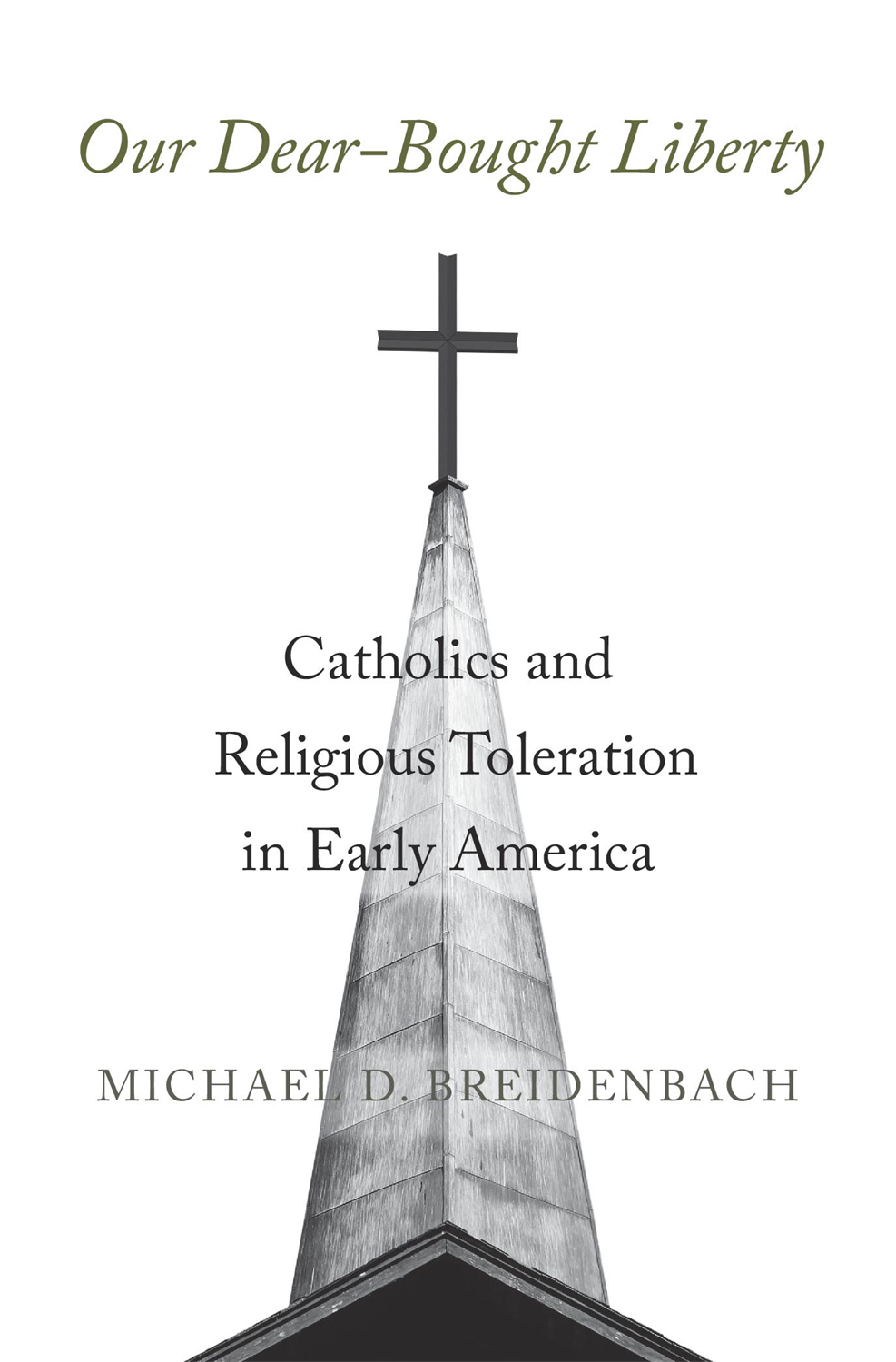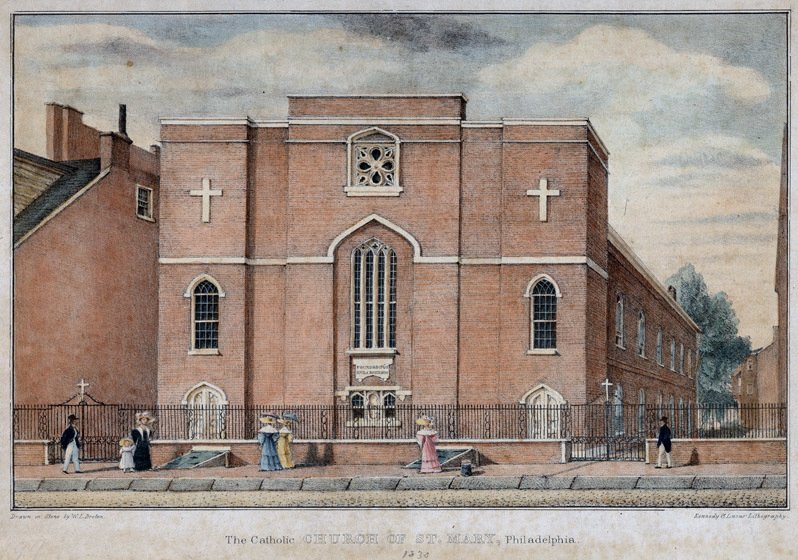Our Dear-Bought Liberty: Catholics and Religious Toleration in Early America
By Michael Breidenbach
JMC fellow Michael Breidenbach has just released a new book, Our Dear-Bought Liberty: Catholics and Religious Toleration in Early America.
In colonial America, Catholics were presumed dangerous until proven loyal. Yet Catholics went on to sign the Declaration of Independence and helped to finalize the First Amendment to the Constitution. What explains this remarkable transformation? Michael Breidenbach shows how Catholic leaders emphasized their church’s own traditions—rather than Enlightenment liberalism—to secure the religious liberty that enabled their incorporation in American life.
 Catholics responded to charges of disloyalty by denying papal infallibility and the pope’s authority to intervene in civil affairs. Rome staunchly rejected such dissent, but reform-minded Catholics justified their stance by looking to conciliarism, an intellectual tradition rooted in medieval Catholic thought yet compatible with a republican view of temporal independence and church–state separation. Drawing on new archival material, Breidenbach finds that early American Catholic leaders, including Maryland founder Cecil Calvert and members of the prominent Carroll family, relied on the conciliarist tradition to help institute religious toleration, including the Maryland Toleration Act of 1649.
Catholics responded to charges of disloyalty by denying papal infallibility and the pope’s authority to intervene in civil affairs. Rome staunchly rejected such dissent, but reform-minded Catholics justified their stance by looking to conciliarism, an intellectual tradition rooted in medieval Catholic thought yet compatible with a republican view of temporal independence and church–state separation. Drawing on new archival material, Breidenbach finds that early American Catholic leaders, including Maryland founder Cecil Calvert and members of the prominent Carroll family, relied on the conciliarist tradition to help institute religious toleration, including the Maryland Toleration Act of 1649.
The critical role of Catholics in establishing American church–state separation enjoins us to revise not only our sense of who the American founders were, but also our understanding of the sources of secularism. Church–state separation in America, generally understood as the product of a Protestant-driven Enlightenment, was in key respects derived from Catholic thinking. Our Dear-Bought Liberty therefore offers a dramatic departure from received wisdom, suggesting that religious liberty in America was not bestowed by liberal consensus but partly defined through the ingenuity of a persecuted minority.
Order now from Harvard University Press or Amazon >>
 Michael Breidenbach is Associate Professor and Chair of History at Ave Maria University. His research interests concern the history of political, legal, and religious thought, especially in early America and the Atlantic World. He has a particular interest in religious liberty, church and state, and the relationship between religion and politics. He is co-editor of The Cambridge Companion to the First Amendment and Religious Liberty (Cambridge University Press, 2020), and his recent work has also been published in William and Mary Quarterly, Perspectives on Political Science, The Things that Matter: Essays Inspired by the Later Work of Jacques Maritain, and Disestablishment and Religious Dissent: Church-State Relations in the New American States, 1776-1833.
Michael Breidenbach is Associate Professor and Chair of History at Ave Maria University. His research interests concern the history of political, legal, and religious thought, especially in early America and the Atlantic World. He has a particular interest in religious liberty, church and state, and the relationship between religion and politics. He is co-editor of The Cambridge Companion to the First Amendment and Religious Liberty (Cambridge University Press, 2020), and his recent work has also been published in William and Mary Quarterly, Perspectives on Political Science, The Things that Matter: Essays Inspired by the Later Work of Jacques Maritain, and Disestablishment and Religious Dissent: Church-State Relations in the New American States, 1776-1833.
Professor Breidenbach is a JMC fellow.
Learn more about Michael Breidenbach >>
![]()
![]() Follow us on Facebook and Twitter for updates about lectures, publications, podcasts, and events related to American political thought, United States history, and the Western political tradition!
Follow us on Facebook and Twitter for updates about lectures, publications, podcasts, and events related to American political thought, United States history, and the Western political tradition!
Want to help the Jack Miller Center transform higher education? Donate today.
